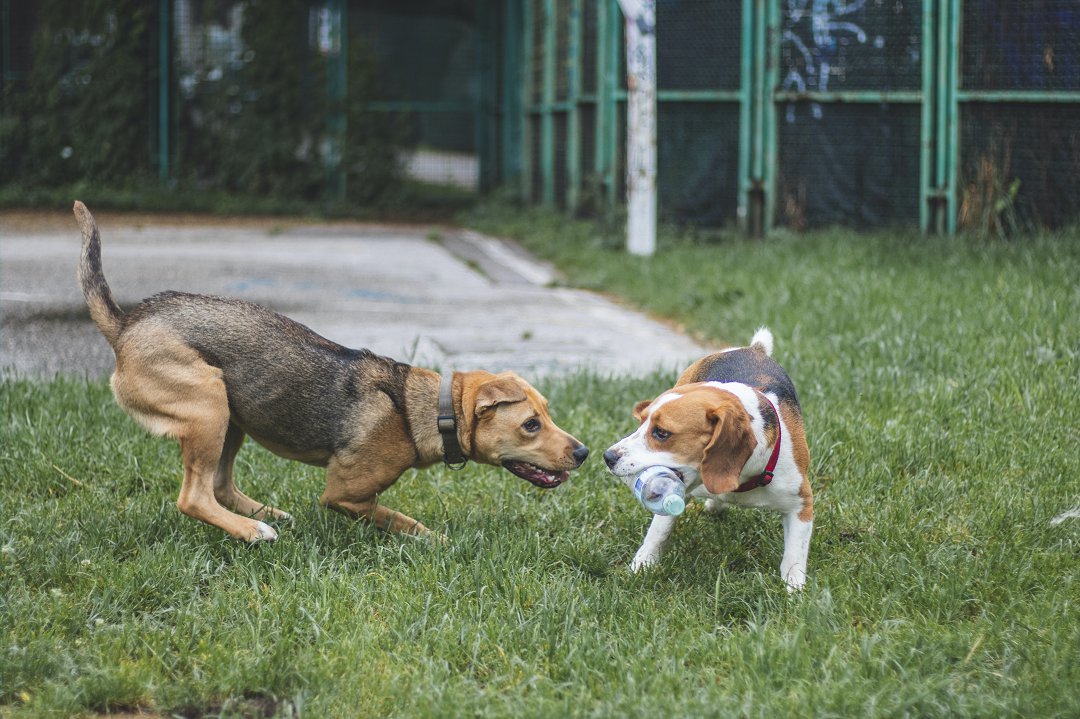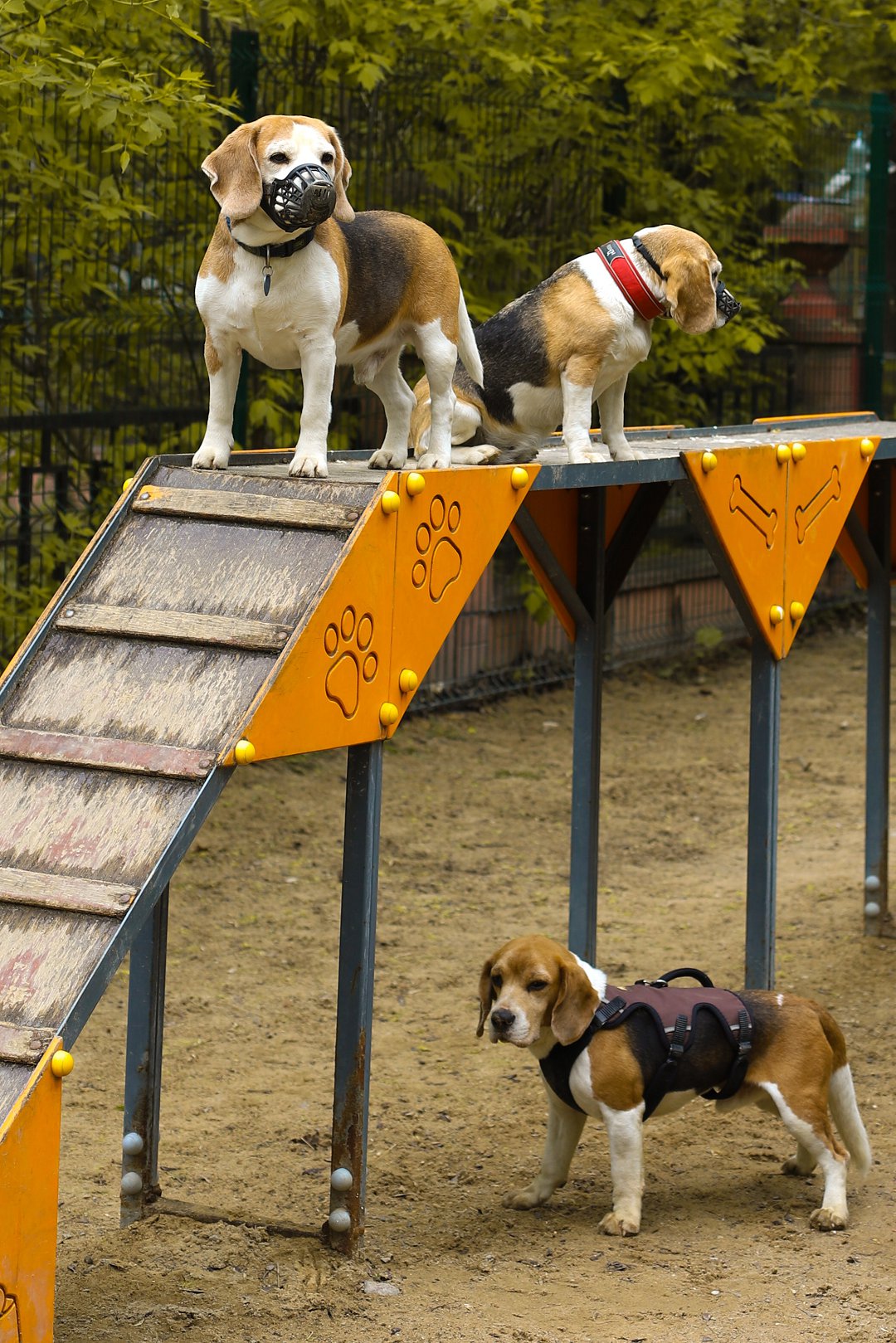Table of Contents
- 1 Introduction: Understanding Aggressive Behavior in Beagles
- 2 Identifying Triggers and Causes of Beagle Aggression
- 3 Effective Solutions for Managing Aggressive Beagles
- 4 FAQs About: Why Does My Beagle Get Aggressive?
- 4.1 What are some common triggers for beagle aggression?
- 4.2 How can I prevent my beagle from becoming aggressive?
- 4.3 Can genetic predisposition contribute to beagle aggression?
- 4.4 What is redirected aggression in beagles?
- 4.5 How can I address possessive aggression in my beagle?
- 4.6 What should I do if my beagle’s aggression is causing safety concerns?
Introduction: Understanding Aggressive Behavior in Beagles
Have you ever wondered, “Why does my beagle get aggressive?” It can be concerning and confusing when your furry friend displays aggression. But fear not, because in this article, we will delve into the world of beagle aggression and help you understand the reasons behind it. Aggressive behavior in beagles can have various triggers and causes, such as genetic predisposition, lack of socialization, fear-based aggression, and more. By gaining a deeper understanding of these factors, you will be better equipped to identify and address your beagle’s aggression. So, let’s jump right in and explore the fascinating world of beagle aggression together.
Identifying Triggers and Causes of Beagle Aggression
Aggression in beagles can be a concerning behavior for dog owners. Understanding the triggers and causes of this aggression is crucial in order to effectively manage and address the issue. There are several factors that can contribute to a beagle’s aggressive behavior, including:
1. Genetic Predisposition
Some beagles may have a genetic predisposition towards aggression. This means that certain aggressive tendencies may be inherited from their parents. While genetics can play a role in aggression, it is important to note that not all beagles with aggressive behavior have a genetic predisposition.
2. Lack of Socialization
A lack of proper socialization during a beagle’s early development stages can lead to aggression. When a beagle is not exposed to various people, animals, and environments, they may become fearful and aggressive towards unfamiliar stimuli. Socialization is crucial in helping beagles develop appropriate behaviors and responses.
3. Fear-Based Aggression
Fear aggression is one of the most common types of aggression seen in beagles. When a beagle feels threatened or scared, they may respond aggressively as a way to protect themselves. This can happen in situations such as encountering unfamiliar dogs, loud noises, or new environments.
4. Resource Guarding
Beagles, like many other dogs, can exhibit aggressive behavior when they feel the need to protect their resources, such as food, toys, or sleeping areas. Resource guarding can stem from a natural instinct to secure valuable possessions, but it can be problematic if it becomes excessive or uncontrollable.
5. Territorial Aggression
Some beagles may display aggression towards intruders or unfamiliar people entering their territory. This behavior is often seen when a beagle perceives a threat to their home or family members. It is important to note that territorial aggression can be managed and modified with proper training and behavior modification techniques.
6. Reactive Aggression
Reactive aggression occurs when a beagle reacts aggressively to a specific trigger, such as another dog, a loud noise, or sudden movements. This type of aggression is often a result of fear or anxiety and can be managed through desensitization and counter-conditioning techniques.
Understanding the triggers and causes of aggression in beagles is essential in order to address the issue effectively. By identifying the underlying factors contributing to the aggression, dog owners can implement appropriate training and behavior modification techniques to help their beagles overcome their aggressive tendencies. In the next section, we will explore effective solutions for managing aggressive beagles and promoting more positive behaviors.
Effective Solutions for Managing Aggressive Beagles
Aggression in Beagles can be a concerning behavior, but there are effective solutions available to manage and address this issue. By understanding the underlying causes and triggers, you can implement appropriate strategies to help your Beagle become a well-behaved and happy companion.
1. Seek Professional Help
If your Beagle’s aggression is severe or persistent, it is crucial to consult with a professional dog trainer or animal behaviorist. They have the expertise to assess the situation and provide tailored guidance for your specific case. They can help identify the root cause of the aggression and develop a comprehensive behavior modification plan.
2. Positive Reinforcement Training
Positive reinforcement training techniques can be highly effective in managing aggressive behavior in Beagles. By rewarding desired behaviors and ignoring or redirecting unwanted ones, you can encourage your Beagle to make better choices. Rewarding calm and non-aggressive behaviors, such as sitting or staying, can help reinforce positive associations.
3. Socialization
Lack of socialization is often a contributing factor to aggression in Beagles. Exposing your Beagle to various people, animals, and environments from a young age can help them become more comfortable and less reactive. Gradually exposing them to new situations and rewarding calm behavior can help reduce fear-based aggression.
4. Consistent and Clear Boundaries
Establishing consistent and clear boundaries is essential for managing aggression in Beagles. By setting rules and enforcing them consistently, your Beagle will understand what behaviors are acceptable and what are not. This can help prevent territorial aggression, possessive aggression, and dominance aggression.
5. Avoid Triggers
Identifying and avoiding triggers that provoke aggression in your Beagle is crucial. Whether it’s certain people, animals, or situations, knowing what sets off your Beagle’s aggression can help you prevent or manage it effectively. For example, if your Beagle becomes reactive during mealtime, you can feed them in a separate room to reduce resource guarding behavior.
6. Exercise and Mental Stimulation
Regular exercise and mental stimulation are essential for a well-balanced Beagle. A tired and mentally stimulated Beagle is less likely to exhibit aggressive behavior. Engage your Beagle in activities such as puzzle toys, obedience training, and interactive play sessions to channel their energy in a positive way.
7. Patience and Consistency
Addressing aggression in Beagles takes time and patience. It’s important to remain consistent with your training and management strategies. Reinforce positive behaviors consistently and avoid inadvertently rewarding aggressive behavior. With time and proper guidance, your Beagle can learn to manage their aggression and become a happier and well-adjusted companion.
By implementing these effective solutions and seeking professional help when needed, you can address and manage aggression in your Beagle. Remember, each Beagle is unique, and it may take time to find the right approach for your furry friend. Stay committed, be patient, and always prioritize their well-being.
FAQs About: Why Does My Beagle Get Aggressive?
What are some common triggers for beagle aggression?
Beagle aggression can be triggered by various factors such as fear, resource guarding, territorial instincts, and lack of socialization. Identifying these triggers can help in managing and preventing aggressive behavior.
How can I prevent my beagle from becoming aggressive?
To prevent aggression in beagles, it is important to provide proper socialization from an early age, expose them to different environments, and ensure they have positive experiences with people and other animals. Consistent training, positive reinforcement, and avoiding situations that may trigger aggression can also be helpful.
Can genetic predisposition contribute to beagle aggression?
Yes, genetic factors can play a role in beagle aggression. Some beagles may have a predisposition towards certain aggressive behaviors due to their genetic makeup. However, it is important to note that genetics alone do not determine behavior, and proper training and socialization can help manage and mitigate aggression.
What is redirected aggression in beagles?
Redirected aggression occurs when a beagle becomes aggressive towards a person or animal due to frustration or arousal caused by a different stimulus. For example, if a beagle is unable to reach a perceived threat, it may redirect its aggression towards a nearby person or animal. Identifying and addressing the underlying cause of frustration can help manage this type of aggression.
How can I address possessive aggression in my beagle?
If your beagle displays possessive aggression, it is crucial to establish yourself as the pack leader and set clear boundaries. Teach your beagle the “drop it” or “leave it” command and reward them for relinquishing objects without displaying aggression. Consulting a professional dog trainer or behaviorist can also provide guidance on managing possessive aggression effectively.
What should I do if my beagle’s aggression is causing safety concerns?
If your beagle’s aggression poses a safety risk, it is important to prioritize the safety of yourself, your family, and others. Seeking professional help from a certified dog behaviorist or trainer can provide specialized guidance and develop a tailored behavior modification plan to address the aggression. They can also assess if there are any underlying medical issues contributing to the aggression.






Leave a Reply